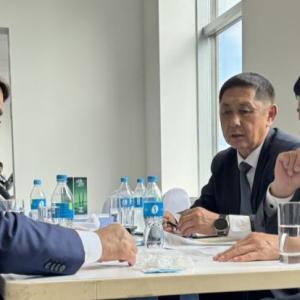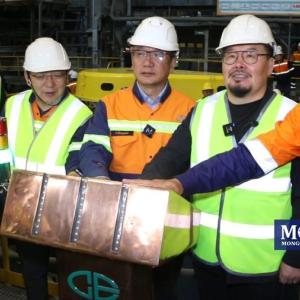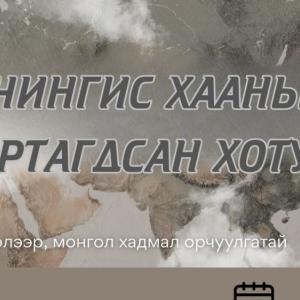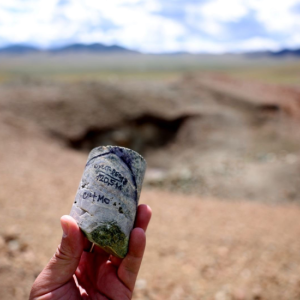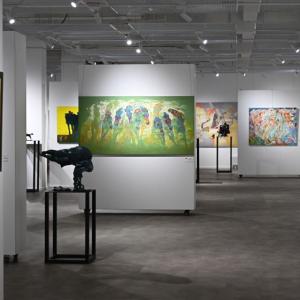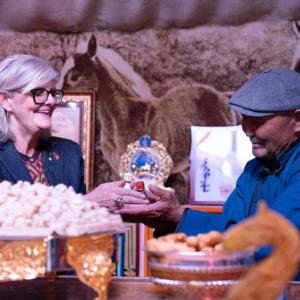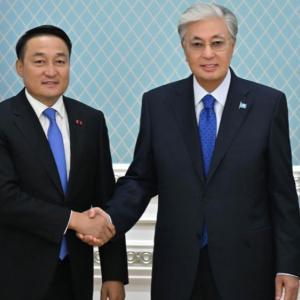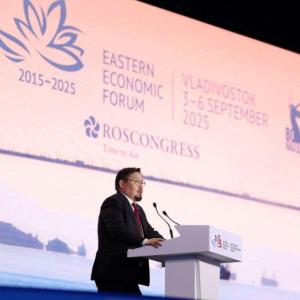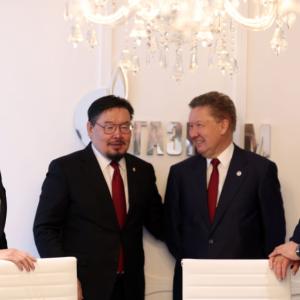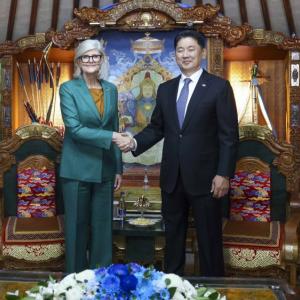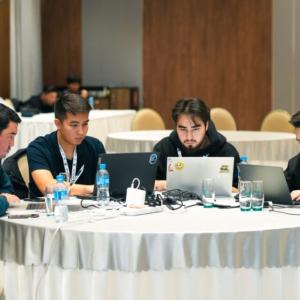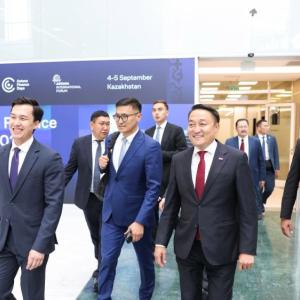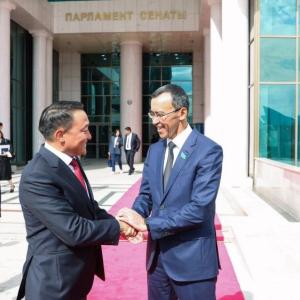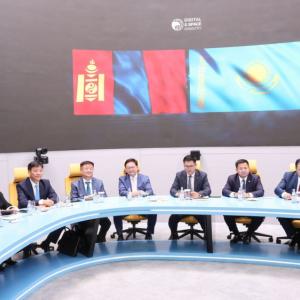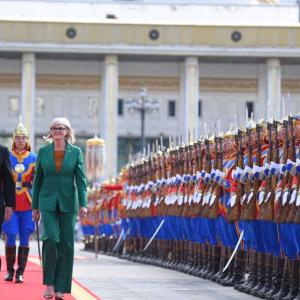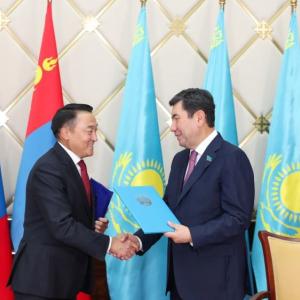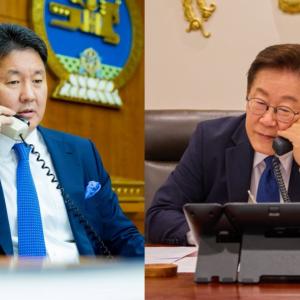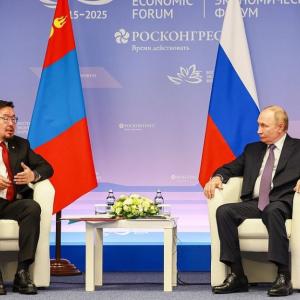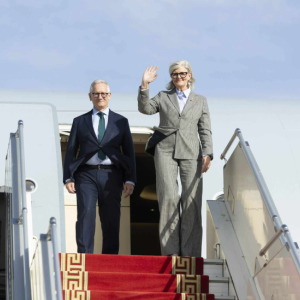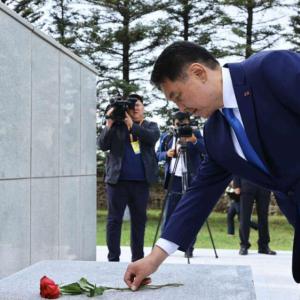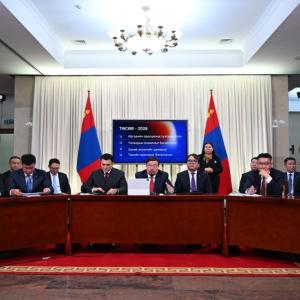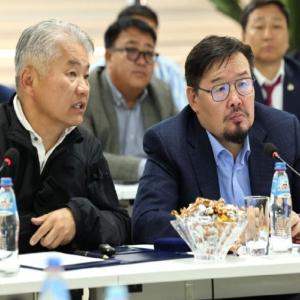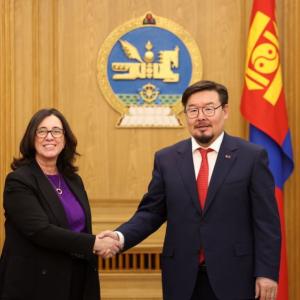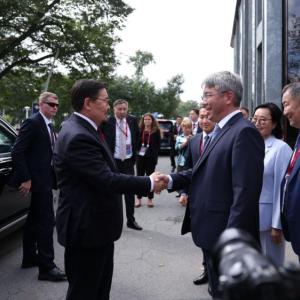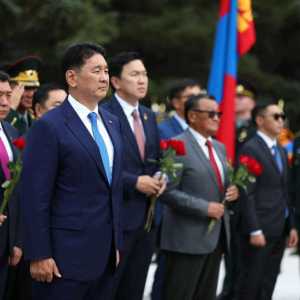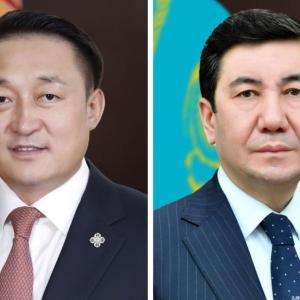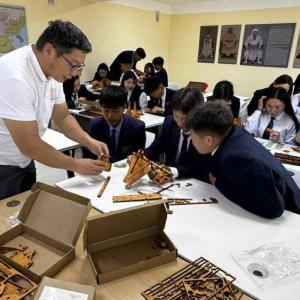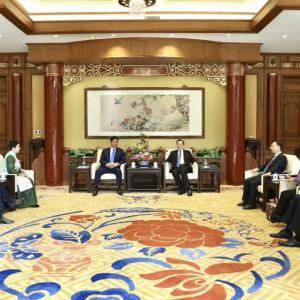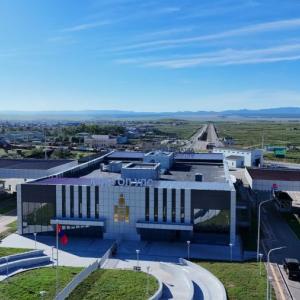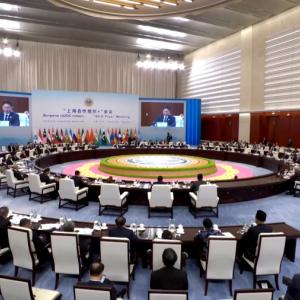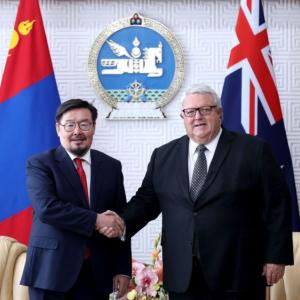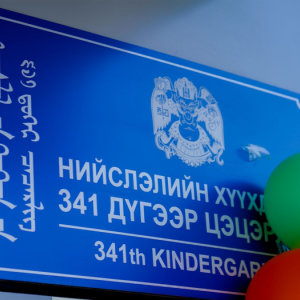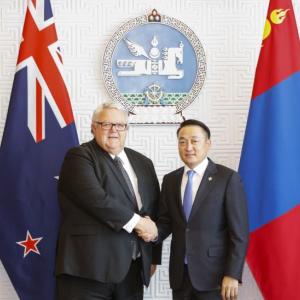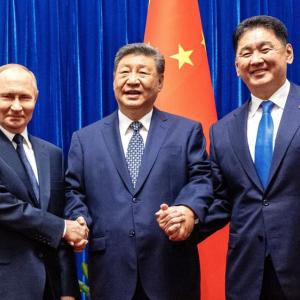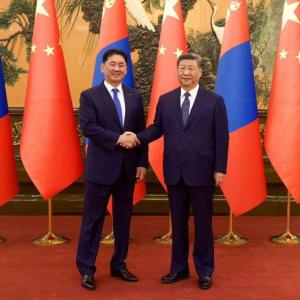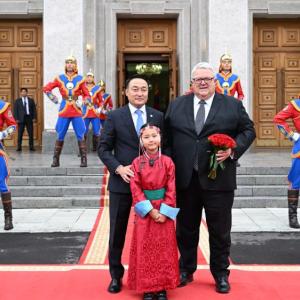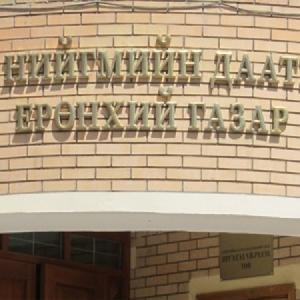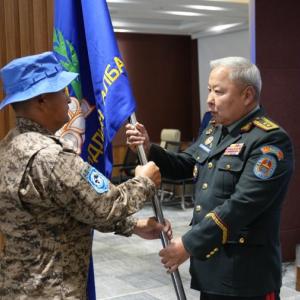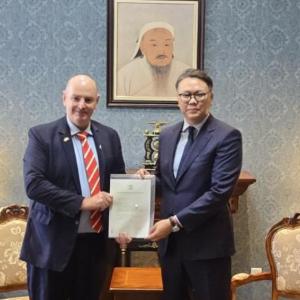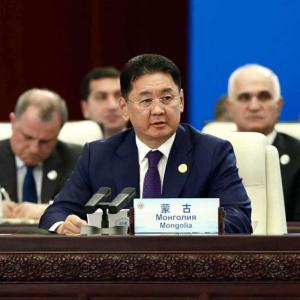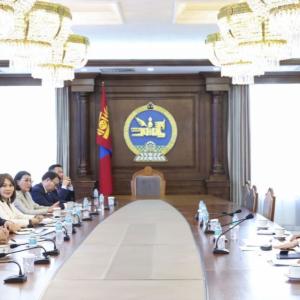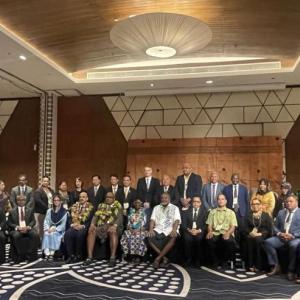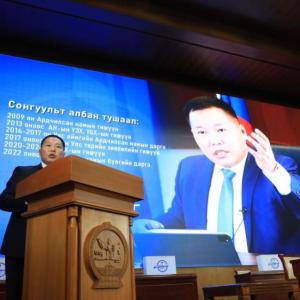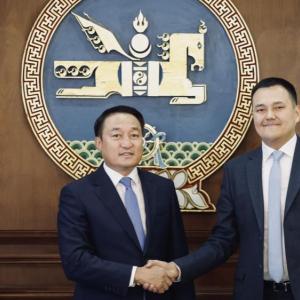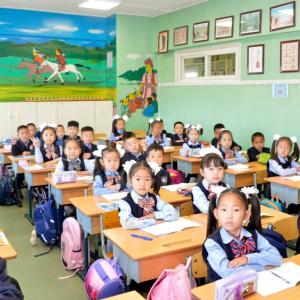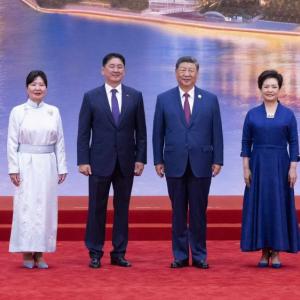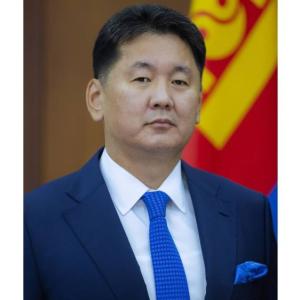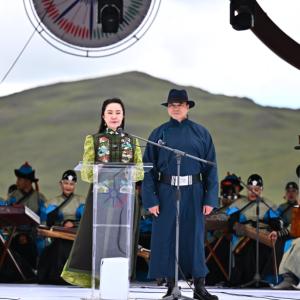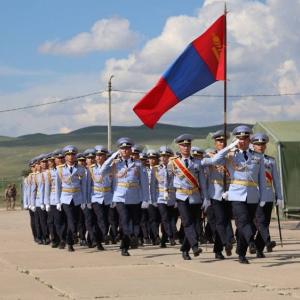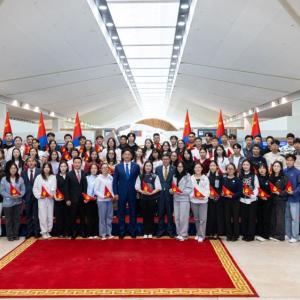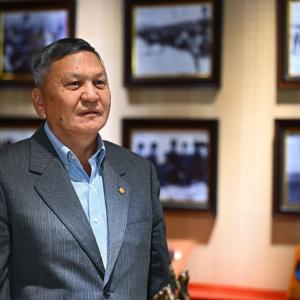Ulaanbaatar Call for Action on Advancing the Human Rights of Older Persons Adopted
Society
Ulaanbaatar, September 8, 2025 /MONTSAME/. The National Human Rights Commission of Mongolia initiated and hosted the Asia-Pacific Forum on 'Active Ageing: Building an Age-Friendly Society for the Older Persons' on June 19-20, 2025.
Representatives of National Human Rights Institutions (NHRIs), international organisations, civil society organisations, and older persons from across the Asia-Pacific and beyond gathered in Ulaanbaatar, Mongolia, and adopted the “Ulaanbaatar Call for Action on Advancing the Human Rights of Older Persons,” reaffirming their shared commitment to the dignity, equality, and rights of older persons. Participants included Mr. Ahn Chang-ho, Chairman of the National Human Rights Commission of Korea, Ms. Chitralekha Mari Massey, Head of Ageing Rights of the UN Office of the High Commissioner for Human Rights, and representatives from the National Human Rights Institutions from the Philippines, Nepal, Jordan, Thailand, India, Poland, and Qatar.
According to the participants' consultations, the “Ulaanbaatar Call” was adopted with objectives on protecting the rights of older persons and improving international and national legal environments.
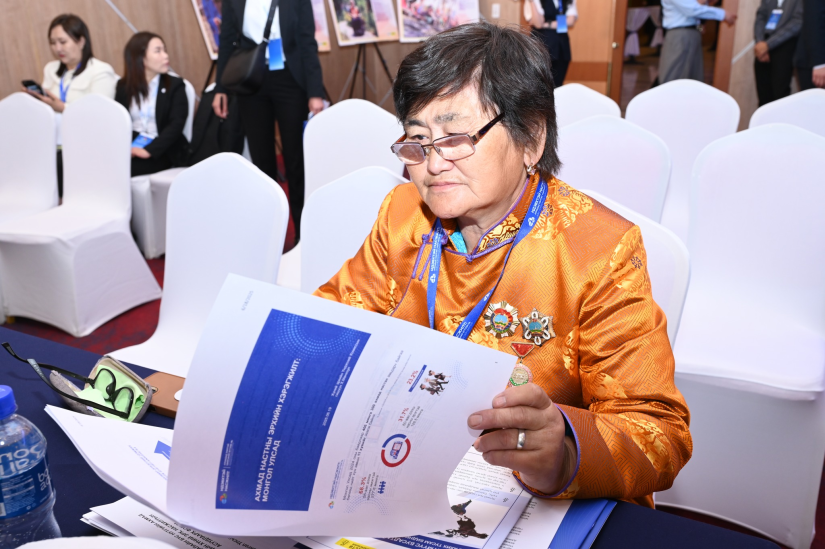
The Call builds upon previous regional initiatives, including the 2023 Manila Call to Action, and is inspired by United Nations Human Rights Council Resolution 58/13, adopted on April 3, 2025, which established an Open-Ended Intergovernmental Working Group (OEIWG) tasked with drafting a legally binding international instrument on the human rights of older persons. The document issues a call for strengthened global and regional action.
Recognising that:
• Older persons continue to face systemic, multiple, and intersecting forms of discrimination, invisibility, and marginalisation in many fields of public and private life;
• The rapidly ageing population in the Asia-Pacific region requires transformative action to protect and promote the rights, dignity, and inclusion of older persons more effectively;
• Existing frameworks, including the Madrid International Plan of Action on Ageing (2002), while providing important policy guidance and frameworks, lack binding legal status and effective accountability mechanisms;
• The UN General Assembly Open-ended Working Group on Ageing concluded at its 14th and final session in 2024 that there were many “possible gaps” in the international framework for the protection of the human rights of older persons and recommended, inter alia, the elaboration of an international legally binding instrument;
• Human Rights Council Resolution 58/13 marks a pivotal moment in international recognition of the need for a comprehensive, binding legal instrument that affirms and protects the human rights of older persons;
• NHRIs play a unique bridging role between global standards and local implementation, and are well-positioned to monitor, advise, and advocate.

The Call sets out the following actions:
1. Treaty process. Urge all UN Member States to commit to the development and adoption of an international treaty that promotes, protects, and ensures the full enjoyment of human rights by older persons, to support the OEIWG process, and to engage actively and constructively in the elaboration of a treaty.
2. Role of NHRIs. Reaffirm the mandate of all NHRIs, particularly A-status NHRIs, to:
a) Participate in and contribute to international and regional processes, including the Human Rights Council, the Universal Periodic Review, and the OEIWG;
b) Encourage governments to translate international human rights commitments into national laws and policy reforms;
c) Monitor, investigate, and report human rights violations such as discrimination, neglect, and abuse of older persons, including in institutional settings and during emergencies;
d) Collaborate with civil society organisations and their networks, including older persons’ organisations, academic institutions, and inter-faith communities, to promote age-inclusive societies;
e) Ensure the rights of older persons are prioritised by integrating ageing issues across all core functions and institutional mandates;
f) Encourage B-status NHRIs to fully adhere to the Paris Principles so they can strongly advocate for the rights of older persons and engage actively and perform the above-mentioned mandates.
3. Participation. Call for the full, meaningful, and sustained participation of older persons at local and national levels in all matters that affect them, ensuring inclusive engagement mechanisms that actively solicit and amplify the voices of older women, rural elders, persons with disabilities, indigenous peoples, and others facing compounded discrimination.
4. Closing protection gaps. Echo long-standing calls to address the significant protection gaps older persons face in international human rights law, and urge the OEIWG and Member States to ensure that any comprehensive convention addresses, in particular, areas such as legal capacity, autonomy, long-term care, digital inclusion, access to justice, freedom from violence and abuse, and access to age-appropriate and gender-responsive health services, including mental health and sexual and reproductive health and rights, throughout the life course.
5. Gender equality. Call for urgent attention to the lifelong impact of gender inequality, which leaves many older women and older persons with diverse SOGIE facing poverty, isolation, heightened vulnerability, and increased risk of gender-based violence in older age.
6. Policies and data. Call for States and development actors to:
a) Integrate the human rights of older persons into ageing policies, national development plans, disaster response, and budgeting processes, ensuring that the specific needs and contributions of all older persons, including older women, are systematically addressed in humanitarian action and recovery efforts;
b) Promote the silver economy while safeguarding older persons’ rights, ensuring they are not commodified but empowered as active economic participants with full agency;
c) Ensure the systematic collection and use of disaggregated data by age, sex, disability, geographic location (urban/rural), and other intersecting characteristics, to inform evidence-based policymaking on ageing and to identify and address inequalities in access to health, social protection, and other essential services.
7. Paradigm shift. Call for a paradigm shift that recognises older persons as rights-holders and contributors to society, urging public and private institutions, media, and education systems to combat ageism and promote intergenerational solidarity to foster mutual respect, shared learning, and social cohesion across age groups.
8. Protection in conflict. Note that armed conflicts in different parts of the world have caused, and threaten to continue to cause, suffering, serious injury, and death to civilians, including older persons, and urge all parties to seek peaceful resolutions and to ensure full observance of international human rights law and international humanitarian law.
9. UN system support. Encourage the UN system, including the Office of the United Nations High Commissioner for Human Rights, the United Nations Economic and Social Commission for Asia and the Pacific, the World Health Organisation, and other relevant bodies, to strengthen technical and financial support for rights-based ageing policies, and call on the Global Alliance of National Human Rights Institutions, the Asia Pacific Forum of National Human Rights Institutions, and other regional networks to increase coordination, capacity-building, and support for NHRI initiatives on the rights of older persons.
10. Process integrity. Call on the Human Rights Council and the UN General Assembly to ensure that the OEIWG process is transparent, participatory, well-resourced, and time-bound, leading to the prompt adoption of a treaty that reflects the lived realities of older persons worldwide.
Moving Forward
The Call recognises the contributions of NHRIs and encourages inclusive and constructive dialogue on its content within the OEIWG process, as part of collective efforts to shape a strong, rights-based international framework for older persons.
From Ulaanbaatar, the document calls upon governments, NHRIs, international and regional organisations, civil society, and all generations to join in advancing the human rights of older persons and to take a decisive step toward a world where everyone can age in dignity, freedom, and equality.
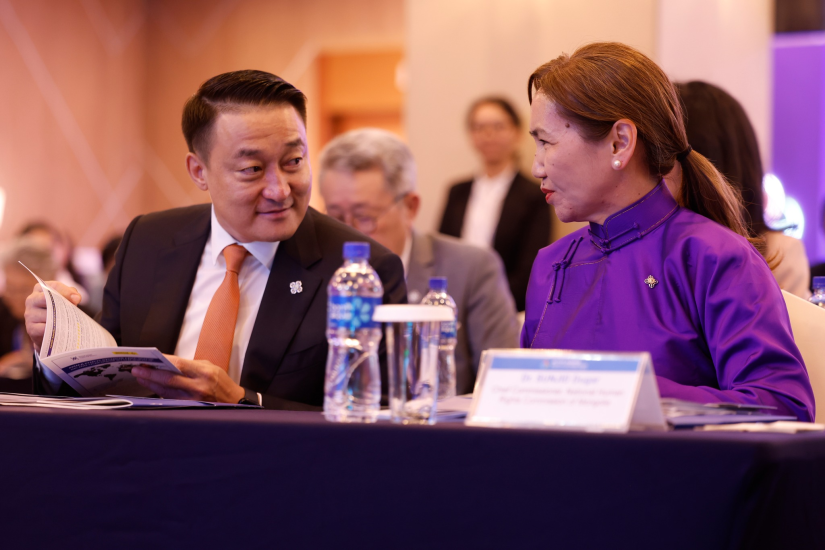


 Ulaanbaatar
Ulaanbaatar

